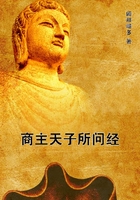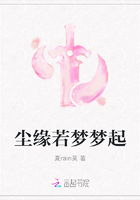But English literature has found more of its material in the Bible than anything else.It has looked there for its characters, its illustrations, its subject-matter.We shall see, as we consider individual writers, how many of their titles and complete works are suggested by the Bible.It is interesting to see how one idea of the Scripture will appear and reappear among many writers.Take one illustration.The Faust story is an effort tomake concrete one verse of Scripture: "What shall it profit a man if he shall gain the whole world and lose his own soul?" Professor Moulton reminds us that the Faust legend appeared first in the Middle Ages.In early English, Marlowe has it, Calderon put it into Spanish, the most familiar form of it is Goethe's, while Philip Bailey has called his account of it Festus.In each of those forms the same idea occurs.A man sells his soul to the devil for the gaining of what is to him the world.That is one of a good many ideas which the Bible has given to literature.The prodigal son has been another prolific source of literary writing.The guiding star is another.Others will readily come to mind.
With that simple background let our minds move down the course of literary history.Style, language, material--we will easily think how much of each the Bible has given to all our great writers if their names are only mentioned.There are four groups of these writers.
1.The Jacobean, who wrote when and just after our version was made.
2.The Georgian, who graced the reigns of the kings whose name the period bears.
3.The Victorian.
4.The American.
There is an attractive fifth group comprising our present-day workers in the realm of pure literature, but we must omit them and give our attention to names that are starred.
It is familiar that in the time of Elizabeth, "England became a nest of singing birds." In the fifty years after the first English theater was erected, the middle of Elizabeth's reign, fifty dramatic poets appeared, many of the first order.Some were distinctly irreligious, as were many of the people whose lives they touched.Such men as Ford, Marlowe, Massinger, Webster, Beaumont, and Fletcher stand like a chorus around Shakespeare and Ben Jonson as leaders.As Taine puts it: "They sing the same piece together, and at times the chorus is equal to the solo; but only at times."[1] Cultured people to-day know the names of most of these writers, but not much else, and it does not heavily serve our argument to say that they felt the Puritan influence; but they all did feel it either directly or by reaction.
[1] History of English Literature, chap.iii.
Edmund Spenser and his friend, Sir Philip Sidney, had closed their work before the King James version appeared, yet the Faerie Queene in its religious theory is Puritan to the core, and Sidney is best remembered by his paraphrases of Scripture.The influence of both was even greater in the Jacobean than in their own period.
It is hardly fair even to note the Elizabethan Shakespeare as under the influence of the King James version.The Bible influenced him markedly, but it was the Genevan version prepared during the exile of the scholars under Bloody Mary, or the Bishops' Bible prepared under Elizabeth.Those versions were familiar as household facts to him."No writer has assimilated the thoughts and reproduced the words of Holy Scripture more copiously than Shakespeare." Dr.Furnivall says that "he is saturated with the Bible story," and a century ago Capel Lloft said quaintly that Shakespeare "had deeply imbibed the Scriptures." But the King James version appeared only five years before his death, and it is in some sense fairer to say that Shakespeare and the King James version are formed by the same influence as to their English style.The Bishop of St.Andrews even devotes the first part of his book on Shakespeare and the Bible to a study of parallels between the two in peculiar forms of speech, and thinks it "probable that our translators of 1611 owed as much to Shakespeare as, or rather far more than, he owed to them."[1] It is generally agreed that only two of his works were written after our version appeared.Several other writers have devoted separate volumes to noting the frequent use by Shakespeare of Biblical phrases and allusions and characters taken from early versions.It is a very tempting field, and we pass it by only because it is hardly in the range of the study we are now making.
[1] Wordsworth, Shakespeare's Knowledge and Use of the Bible, p.9.















